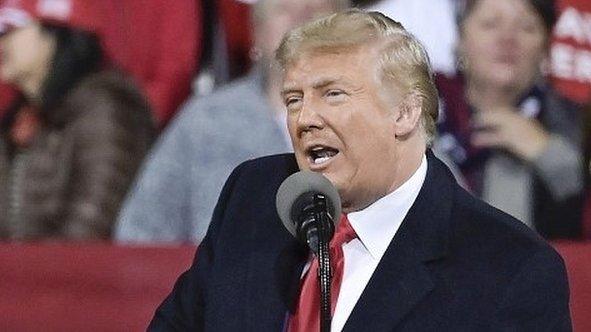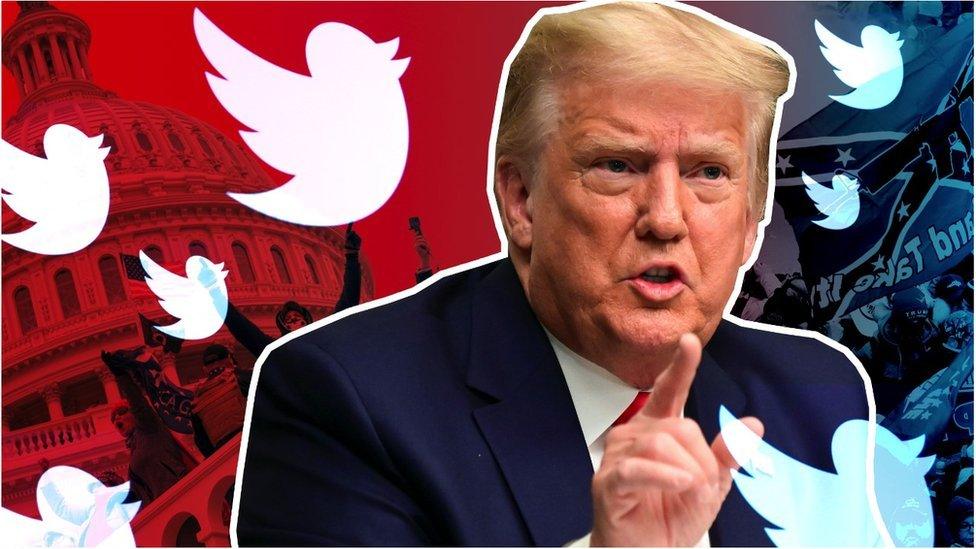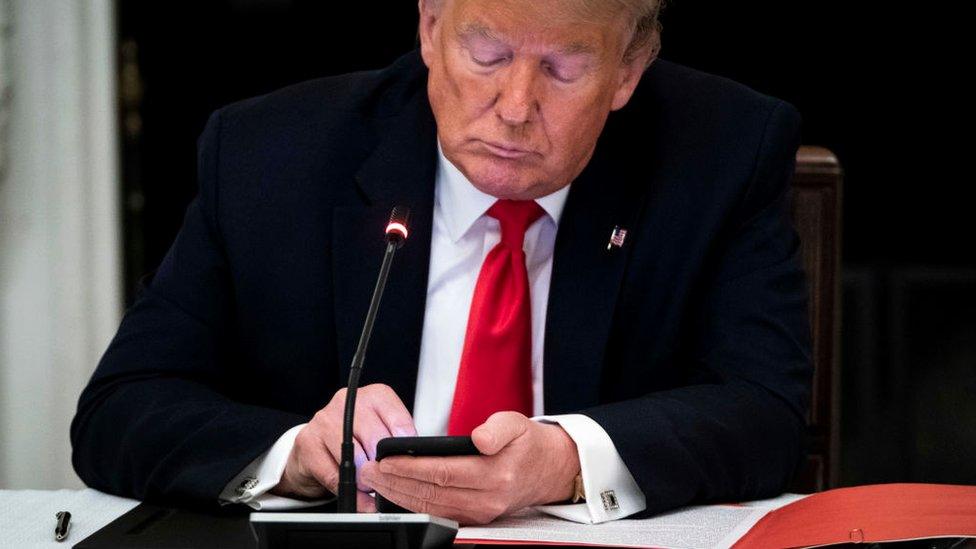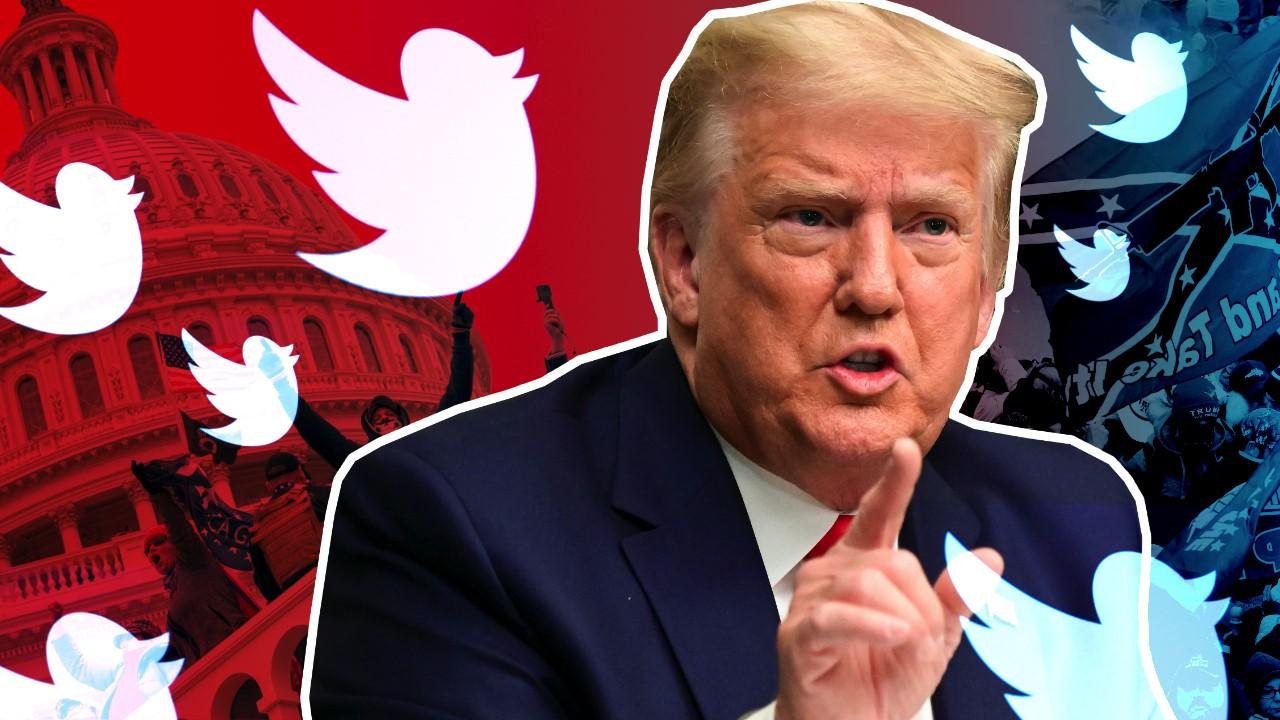Trump Twitter ban 'raises regulation questions' - Hancock
- Published

Twitter permanently suspended his @realDonaldTrump account on Saturday
Bans imposed by Twitter, Facebook and Instagram on Donald Trump's accounts raise a "very big question" about how social media is regulated, Health Secretary Matt Hancock has said.
The companies acted after supporters of the US president stormed Washington DC's Capitol building on Wednesday.
Mr Hancock said the bans showed they were now "taking editorial decisions".
Campaigners want social media to be treated as "publishers", rather than "platforms", meaning more regulation.
But opponents of the idea argue that it could allow governments to limit debate.
Mr Trump faces an impeachment charge, with Democrats accusing the Republican president of encouraging the Washington riots, in which five people died.
Twitter permanently suspended his @realDonaldTrump account on Saturday, citing the "risk of further incitement of violence".
But Mr Trump called this an attack on free speech and suggested he would look at "building out our own platform in the future".
Choosing voices'
There has been a long-running debate over whether social media companies should be treated in law as "publishers", with greater responsibility for dealing with libellous, discriminatory, misleading or incendiary content posted by users.
Mr Hancock, a former culture secretary, told BBC One's Andrew Marr Show: "The scenes, clearly encouraged by President Trump - the scenes at the Capitol - were terrible - and I was very sad to see that because American democracy is such a proud thing.
"But there's something else that has changed, which is that social media platforms are making editorial decisions now. That's clear because they're choosing who should and shouldn't have a voice on their platform."
Mr Hancock said that development was likely to have "consequences".

Asked earlier about Twitter's decision to ban Mr Trump's account, he told Sky News: "I think it raises a very important question, which is it means that the social media platforms are taking editorial decisions.
"And that is a very big question because then it raises questions about their editorial judgements and the way that they're regulated."
Twitter's ban on Mr Trump's account followed the increasing use of warning labels on his posts referring to the coronavirus pandemic and the result of the US presidential election.
In a blog on Friday, the company said its public interest framework existed "to enable the public to hear from elected officials and world leaders directly".
It added: "However, we made it clear going back years that these accounts are not above our rules and cannot use Twitter to incite violence. We will continue to be transparent around our policies and their enforcement."
Facebook and Instagram banned Mr Trump "indefinitely" on Thursday, with Facebook chief executive Mark Zuckerberg saying this sanction would not be lifted until at least 20 January, when Joe Biden is sworn in as the new US president.
- Published9 January 2021

- Published9 January 2021
